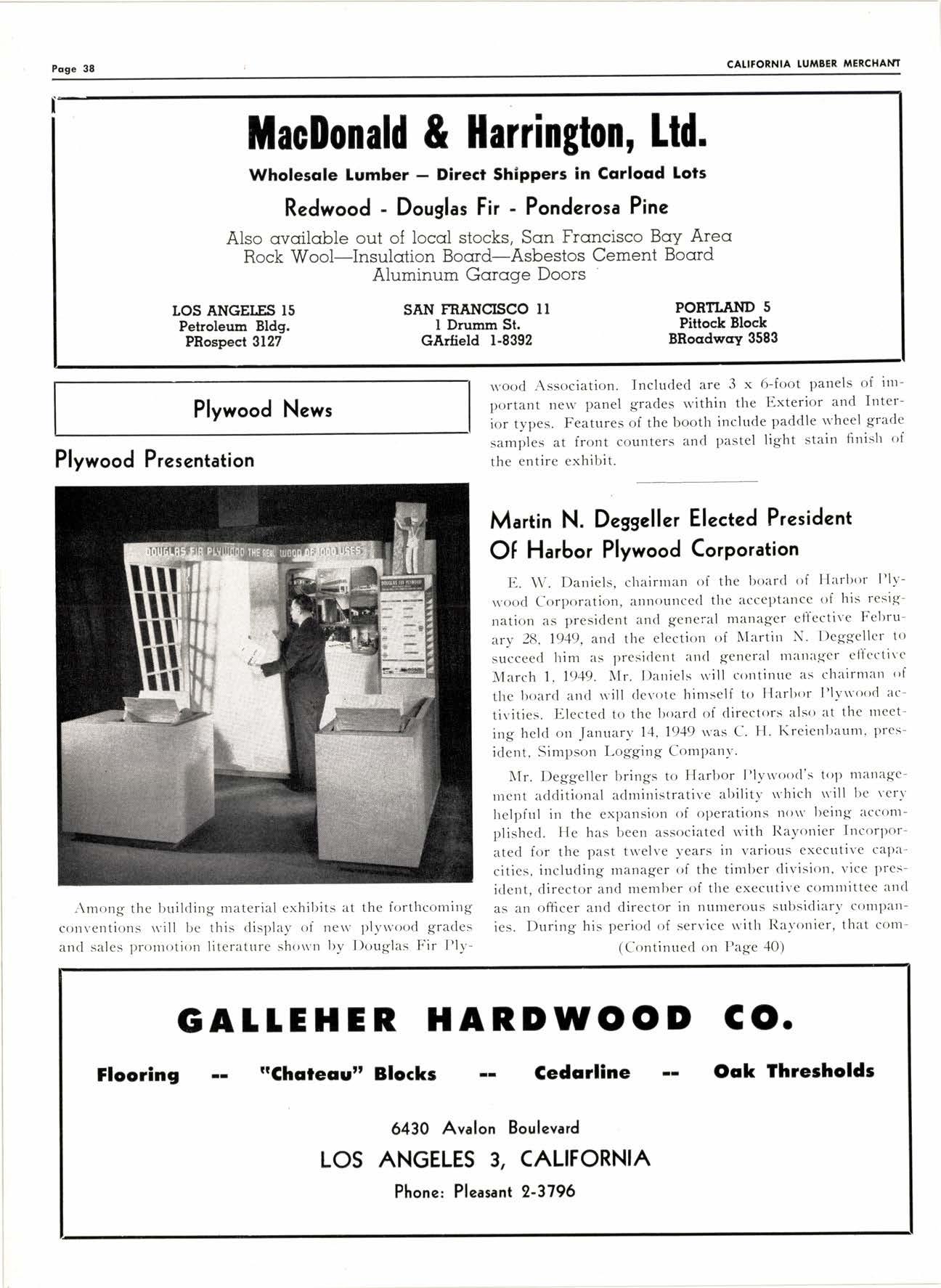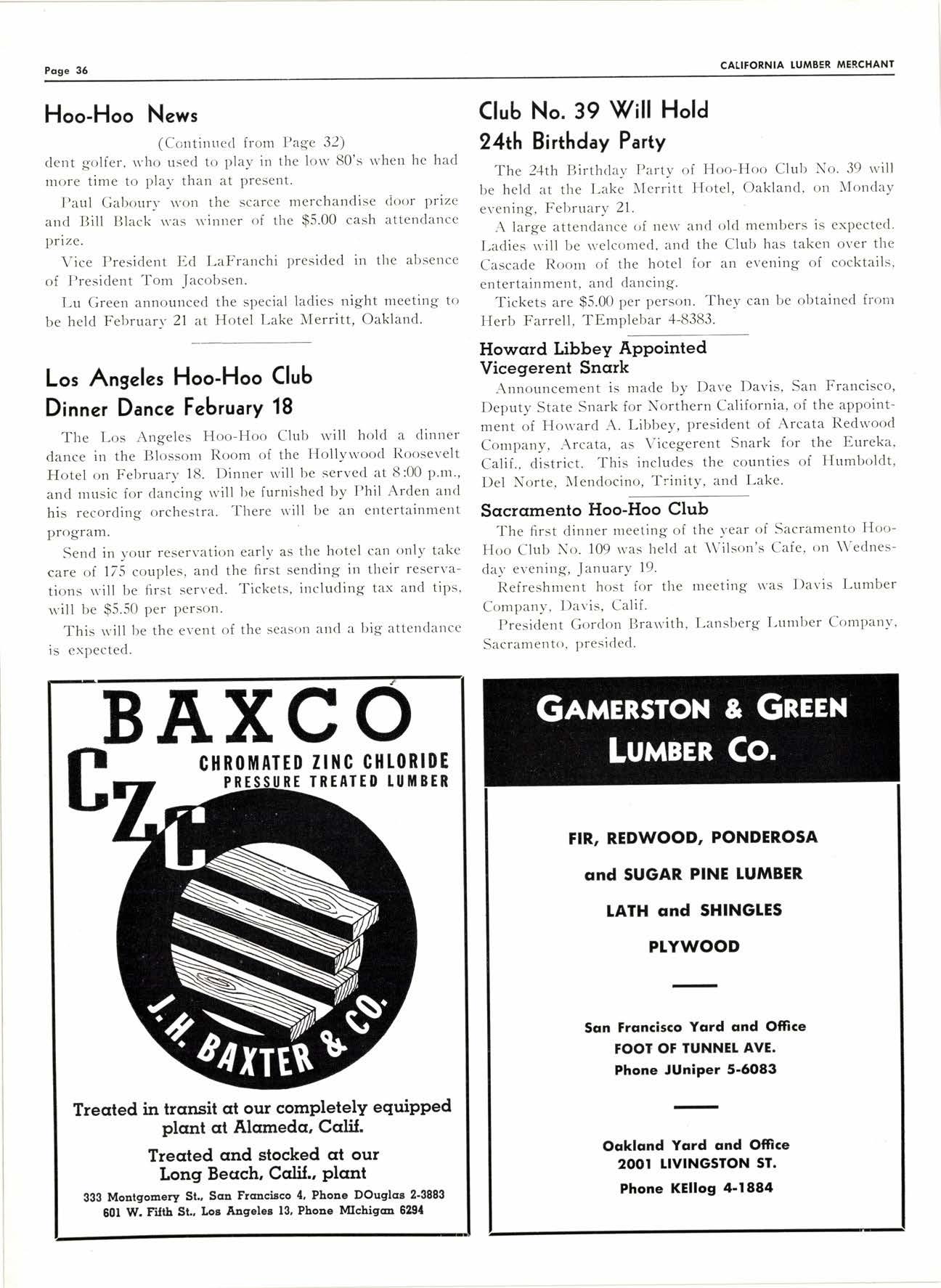
4 minute read
STANDARD O COMPARISON
billions JUST TO SERVICE THE PRESENT NATIONAL DEBT of two hundred and fifty-six billion' That just shows the difference between the old days and the new.
Nobody who has *at"nla Lr]t."-"n could have been surprised at his recommendations to Congress. Mr. Truman is a man who does what he says he is going to do. So all the things he had promised during his campaign, he carried through with. It was a strong socialistic philosophy of government that he spoke for, saying it was the "kind of a society" the American people voted for on November second. He called it a "fair deal" program, and to finance it he itemized a budget that called for the spending of nearly forty-two billions of dollars in the coming year. The Houston (Texas) Post, veteran Democratic newspaper spoke editorially of the program in this fashion:
"campaign pledges ""J n:Jres are customarily more honoured in the breach than the observance, but from the tone and content of the President's message and the comments of the administration leaders, the Democratic platform of 1948 is regarded as a mandate which must be carried out at all costs. What these costs will be to the American way of life, and how far the country will be carried along the road of socialism, will depend on the ability of conservative elements in Congress to retard the socializing process. It will be noted that there was no reference in Mr. Truman's message to the dangers of an overextended bureaucracy, nor was there any emphasis on the necessity of reducing federal expenses through proper eco' nomies and the elimination of extravagance."
To finance rri" progr"rri r**t. irt*"" called for a boost in federal taxes to raise an additional four billions of dollars in the next year. This in spite of the fact that the President admits that present estimates of federal revenue exceed the official estimates of last August by the amount of $1,661,000,000, an astonishing increase. But this does not include another nearly two billion dollars which the President suggests getting from additional payroll taxes. He suggests increasing the social security tax on payrolls from one to one and one-half per cent starting July first. He likewise asked legislation along social security lines to cover twenty-five million workers not now under social securitY'
He called for health insurance (socialized medicine), continued rent controls for two years, legislation providing for civil rights, a broad program of public housing, repeal of the Taft-Hartley law, federal ownership of tidelands, stand-by powers and controls over business to be used in case of need, the power to put the federal government into the steel and other industries if necessary, continued farm help and other subsidies, and everything else called for in the Democratic platform. With regard to the Taft-Hartley law, he urged its repeal, but at the same time suggested improvements in the Wagner Act which would again prevail if the Taft-Hartley law were killed. At about the same time Mr. Truman called for the repeal of the controversial labor law, the Supreme Court came out with a decision that state laws banning the closed shop, ARE constitutional. This gave industry and employers some' thing to smile at.
Personally, I spent a great many hours reading the words of President Truman, and also those of many other men commenting on his suggestions and demands. I tried to get a picture of what the President is aiming at, while apparently asking for everything that was called for in the socialistic platform on which he made his winning race. I just take it for granted without argument that he hopes to make a great success of his administration, and that such hopes must necessarily be based on maintaining a high economic structure for the next four years. It looks like he is calling for measures on every hand that are inflationary in their nature, and at the same time asking for powers to control inflation in case that, by reason of his program' it gets out of hand. I think he believes that we MUST continue on a high economic level, and that such level must be secured and maintained at any cost.

He knows as all others know that any sort of serious economic recession would bring destruction to his program, and usher in an era of threatening confusion. So things must stay high, costs, wages, profits, prices, and government assistance; all must remain at near-inflation levels, yet not permitted to go dangerously above those levels. He wants to continue to force prosperity on the farmers by handing them great sums of unearned money. In this most men, otherwise his critics, will p;obably join him, it having become sort of a fetish with this nation that we must keep the farmer fat for free in order that the rest of us may stay fairly so, by working. There is practically no suggestion of economy in his program' in any direction. Economy is to be as unpopular the next four years as it has been for the past sixteen. There is grave danger in any plan calling for a downward revision of the economic level, so we will hold her high, and pray for good luck' That's the program * * * from our own forests ond nrills
Mr. Truman knows that business was amost solidly opposed to his candidacy, and that knowledge made business tremble for a time. But when his close friends and associates began going around assuring business that Mr' Truman is NOT radical, NOT anti-business, and that businessmen have nothing to fear from him, they were probably telling the truth, the whole truth, and nothing but the truth. For only by a program that will keep business h"ppy, keep it prosperous' keep it creating more'and more jobs, and keep it making more and more investments and improvements, can this nation continue to prosper. Fright' en business, and the roof caves in. Mr. Truman and his friends know that full well. It must be a partnership between all the major elements concerned if we are to continue the high tide of prosperity we have been enjoying' I doubt if Mr. Truman, looking forward-as who would not?-to a bright page in history, is going to harass busi' ness in any way. Mr. Roosevelt did it; but things were very difierent then. Personally, I think business is in a good sPot.

POIIDEROSA PIlIE
SUGAR PI]IE
IIICEI{SE CEDAR
DOUGIAS & WHITE FIR
MonUfacturers: Furniture Dimension, Glued-up Stock, Mouldings, Industriol Shook, Veneliqn Blind Stock, Furnilure Porls










